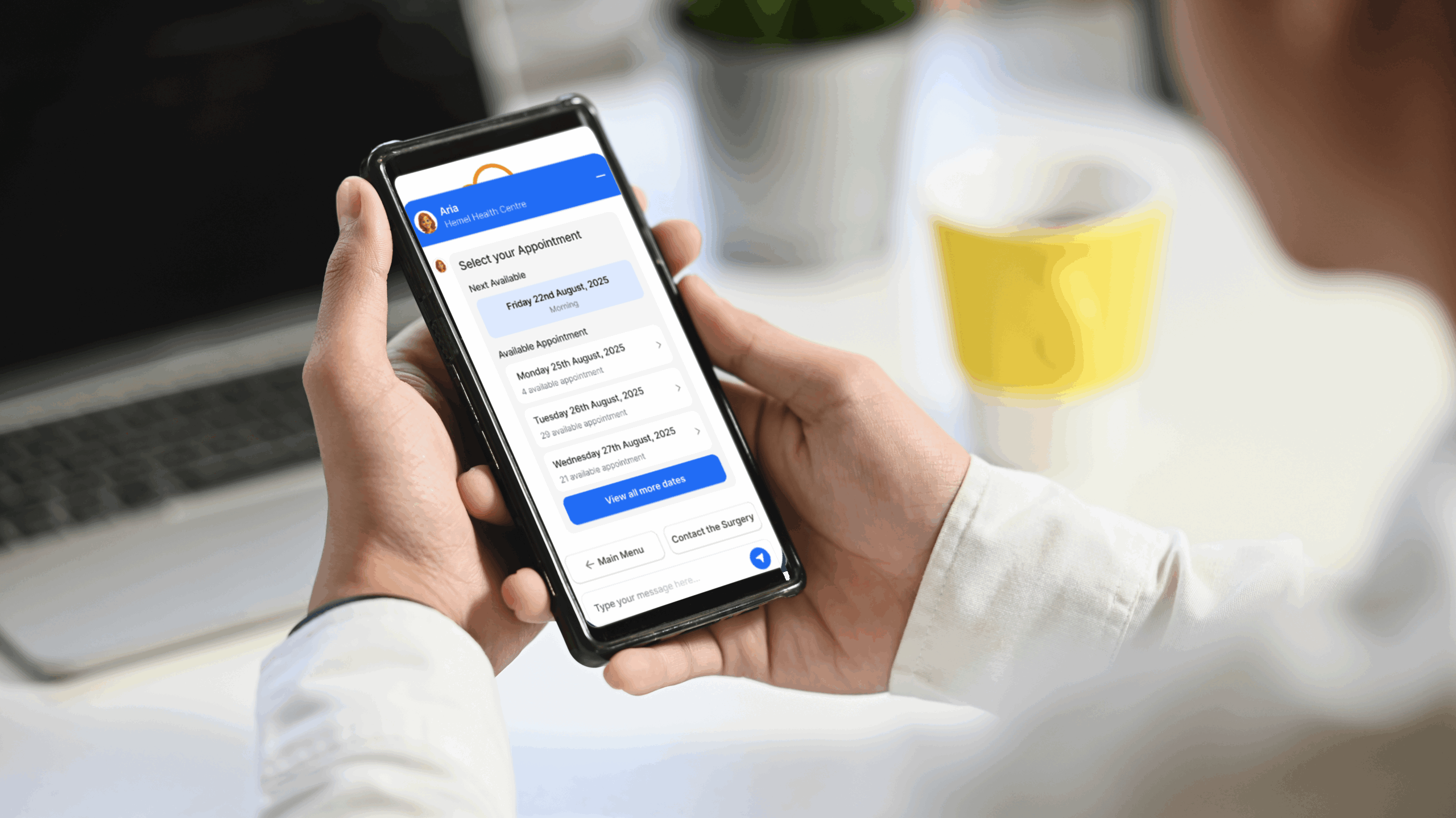As primary care continues its shift toward digital-first access, GP appointment booking has become a critical part of making healthcare simpler for both practices and patients. With NHS England’s GP contract 25/26 changes requiring practices to keep Online Consultation (OC) tools open throughout core hours, there is a clear need for solutions that can manage demand efficiently without increasing workload.
To achieve this balance, practices need tools that give patients flexibility while keeping triage safe and workflows controlled. GP appointment booking plays a key role. Enabling patients to self-book safely while staff retain oversight and manage capacity effectively is key to ensuring these changes improve access rather than simply shifting workload.
At X-on Health, we’re supporting practices to meet this shift confidently through an integrated approach to GP appointment booking that works for every kind of patient journey, whether initiated by the practice team or directly by the patient.
Practice-led GP appointment booking for better efficiency
While the ambition across primary care is to make GP appointment booking more patient-driven, many practices need a measured first step—one that improves convenience without losing oversight.
Practice-led GP appointment booking gives surgeries that balance. For example, through Surgery Connect, staff can generate secure SMS booking links for patients to view, confirm, reschedule or cancel appointments at their own convenience. This small shift removes the need for many routine calls while ensuring that booking remains under the practice’s control.
From the practice’s perspective, the benefits are immediate:
- Reduced phone pressure: Routine booking calls can account for a large share of daily call traffic. Allowing patients to self-manage frees up receptionists to handle complex or urgent cases.
- Improved scheduling: Patients who can rebook or cancel in seconds reduce the number of missed appointments and last-minute cancellations.
- Time saving: Staff spend less time coordinating diary changes or chasing non-attenders.
- Better patient experience: A quick text replaces a long wait in the queue, giving patients control and convenience.
Each SMS booking link is secure and practice-specific, with appointment types and expiry settings configured by the surgery. This provides flexibility for both staff and patients while maintaining safety and consistency. Sitting within Surgery Connect, it links telephony, messaging and triage to support a single, connected view of patient access.
In practice, this means a patient could phone the surgery, receive a booking link during the call, and confirm their appointment within moments. It’s a simple improvement that will help surgeries manage workload more predictably while giving patients greater control over how they engage.
Patient-led GP appointment booking for 24/7 access
Alongside practice-led options, there is growing demand for self-service booking, giving patients the ability to manage appointments directly, at any time of day.
Through the digital care navigation assistant Surgery Assist, patients can do exactly that. Integrated securely with EMIS and SystmOne via the Hero Health Partner API, it verifies patient identity and presents live appointment availability in real time. Patients can then book, amend or cancel appointments for defined routine services such as flu vaccinations, medication reviews or smear tests.
For safety, the digital assistant distinguishes between suitable routine requests and those that need clinical assessment. If a patient reports symptoms that require review, they are automatically guided to an OC form instead, ensuring patients get the care they need and helping practices achieve GP contract 25/26 OC compliance. This combination of automation and built-in triage supports a balanced model of access that is accessible and clinically safe.
Take a look at an example patient conversation with Surgery Assist chatbot ‘Dot’, requesting a routine appointment for a cervical screening.
For patients, the advantages are immediate:
- 24/7 access: Booking is available anytime, anywhere.
- Speed: Routine requests are handled instantly, removing the need to call at 8am.
- Transparency: Real-time availability means no uncertainty or back-and-forth with reception.
- Confidence: Patients are supported through a guided, consistent process that’s inclusive, accessible and clinically safe.
For practices, patient-led GP appointment booking reduces routine workload and creates new capacity for patient care, all while improving the patient experience.
The infrastructure supporting this also sets the stage for wider transformation. The same model can extend to cross-organisation booking, enabling patients to access evening and weekend extended-access hubs directly, supporting the shift to neighbourhood health services. And as voice-enabled booking capabilities emerge, practices will be able to extend the same convenience to patients who prefer or require telephone interaction, ensuring true equity of access.
A connected approach to digital access via GP appointment booking
The reality is that no single tool or channel suits every patient. Some will always prefer phone interaction; others are ready to engage entirely online. What matters is that the technology serving both pathways is connected, consistent and safe.
By offering both practice-led and patient-led GP appointment booking options, practices can tailor their access strategy without adding to their administrative burden. Whether a booking link is sent via SMS or made directly through a digital assistant, all data is captured securely, managed within one ecosystem and easily auditable.
The path to digital-first care doesn’t have to compromise on equity or quality. Connected systems that bring together voice, digital and automation ensure patients are better supported to engage on their own terms and staff can spend more time on direct patient care rather than administration. True digital transformation in primary care isn’t about adding technology, it’s about giving time back to the people who deliver care and creating access that works for every patient, every time.

